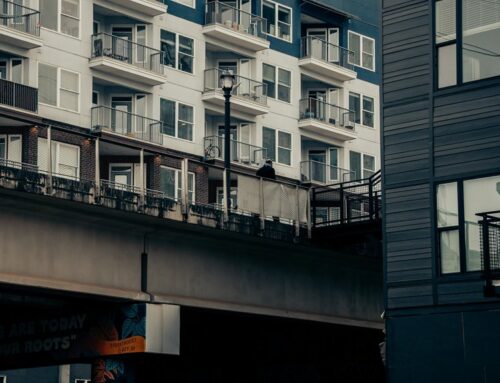Vacant properties, whether they are homes, commercial buildings, or lots, can pose unique challenges to their owners. One of the most pressing issues is security. Without proper measures in place, vacant properties can become targets for vandalism, theft, squatting, and other criminal activities. This blog explores the importance of security for vacant properties and provides practical tips for safeguarding these investments.
1. Preventing Vandalism and Trespassing
Why It Matters: Unmonitored vacant properties are often seen as easy targets for vandalism and unauthorized entry.
Impacts:
- Physical Damage: Vandalism can lead to costly repairs, further deteriorating the property’s condition.
- Legal Issues: Trespassing can create legal challenges, especially if squatters occupy the property.
Security Measures:
- Fencing: Installing a sturdy fence around the property can deter unauthorized access.
- Lighting: Adequate exterior lighting can make the property less appealing to potential vandals and intruders.
2. Reducing Insurance Costs
Why It Matters: Insurers often view vacant properties as high-risk, which can result in higher premiums or even denied coverage.
Impacts:
- Increased Premiums: Without security measures, owners may face inflated insurance rates.
- Policy Limitations: Some insurance policies may not cover damages incurred while the property is vacant if proper security isn’t in place.
Security Measures:
- Alarm Systems: Installing a monitored security alarm can provide peace of mind and may lead to reduced insurance premiums.
- Regular Inspections: Conducting routine inspections can help identify and address potential security issues before they escalate.
3. Protecting Investment Value
Why It Matters: The longer a property remains vacant without proper security, the more its value can diminish due to neglect and damage.
Impacts:
- Decreased Market Value: A poorly maintained or damaged property is less attractive to potential buyers or renters.
- Long-Term Financial Loss: Neglecting security can lead to significant financial losses when it comes time to sell or lease the property.
Security Measures:
- Property Management Services: Hiring a property management company can ensure regular maintenance and security checks.
- Surveillance Cameras: Installing cameras can deter criminal activity and provide evidence if incidents do occur.
4. Enhancing Community Safety
Why It Matters: Vacant properties can contribute to an overall sense of insecurity in the neighborhood, affecting residents’ quality of life.
Impacts:
- Crime Rates: An increase in crime associated with vacant properties can lead to a decline in community safety.
- Negative Community Perception: The presence of poorly maintained vacant properties can lower the overall appeal of a neighborhood.
Security Measures:
- Community Engagement: Collaborating with local neighborhood watch programs can help monitor vacant properties and foster community safety.
- Regular Maintenance: Keeping the property well-maintained signals that it is cared for and can discourage criminal activity.
5. Legal Compliance
Why It Matters: Local governments often have regulations in place regarding the maintenance and security of vacant properties.
Impacts:
- Fines and Penalties: Failure to comply with local ordinances can result in fines, penalties, or even legal action against property owners.
- Liability Issues: Owners may be held liable for injuries occurring on their vacant property if proper precautions aren’t taken.
Security Measures:
- Understand Local Regulations: Familiarize yourself with local laws regarding vacant properties, including maintenance standards and security requirements.
- Secure Proper Permits: If you plan to implement security measures (like fencing or cameras), ensure you have the necessary permits from local authorities.
Conclusion
The security of vacant properties is not just about protecting the physical structure; it’s about safeguarding an investment, maintaining neighborhood integrity, and ensuring compliance with local laws. By taking proactive measures—such as installing security systems, engaging property management, and participating in community safety initiatives—owners can significantly reduce the risks associated with vacant properties.
Investing in security is a wise choice that pays dividends by preserving property value and enhancing the overall safety and quality of the surrounding community.
FAQs
Q: Why are vacant properties often targeted for crime?
A: Vacant properties can be seen as easy targets due to their lack of occupancy and supervision, making them susceptible to vandalism, theft, and squatting.
Q: How can I determine the best security measures for my vacant property?
A: Assess the property’s location, potential risks, and your budget. Consulting with a security professional can also help you identify the most effective solutions.
Q: Are there insurance discounts for securing vacant properties?
A: Many insurance companies offer discounts for properties with installed security systems, regular inspections, and maintained conditions. It’s best to check with your insurance provider.
Q: What should I do if I discover squatters on my vacant property?
A: Contact local authorities immediately, as laws regarding squatters vary by location. Do not attempt to remove them yourself, as this can lead to legal complications.
Q: How often should I check on my vacant property?
A: Regular inspections (at least monthly) are recommended, but more frequent checks may be necessary depending on the property’s location and condition.
By prioritizing security for vacant properties, owners can protect their investment and contribute positively to their community. Taking these measures ensures peace of mind and helps maintain the property’s value over time.











